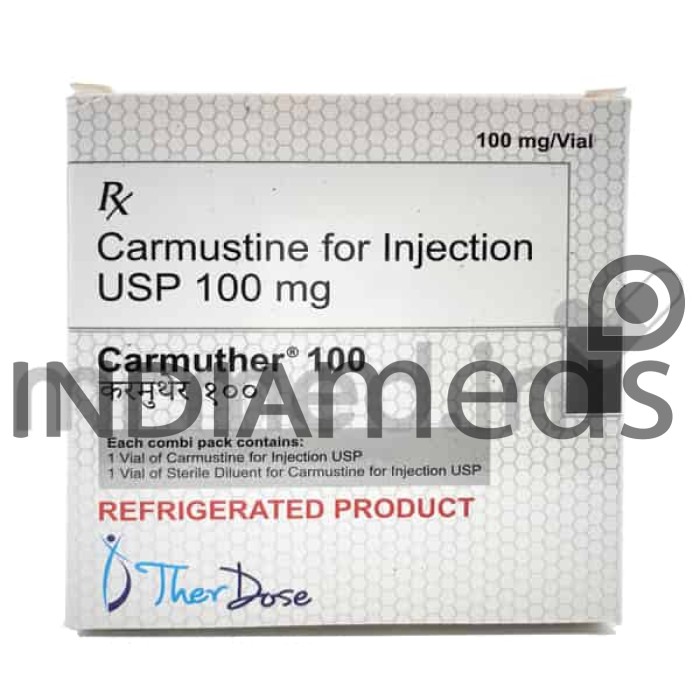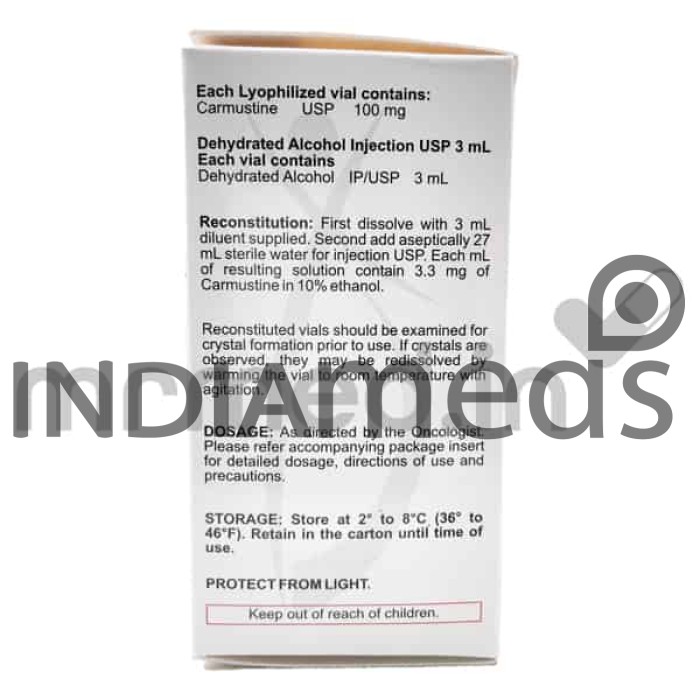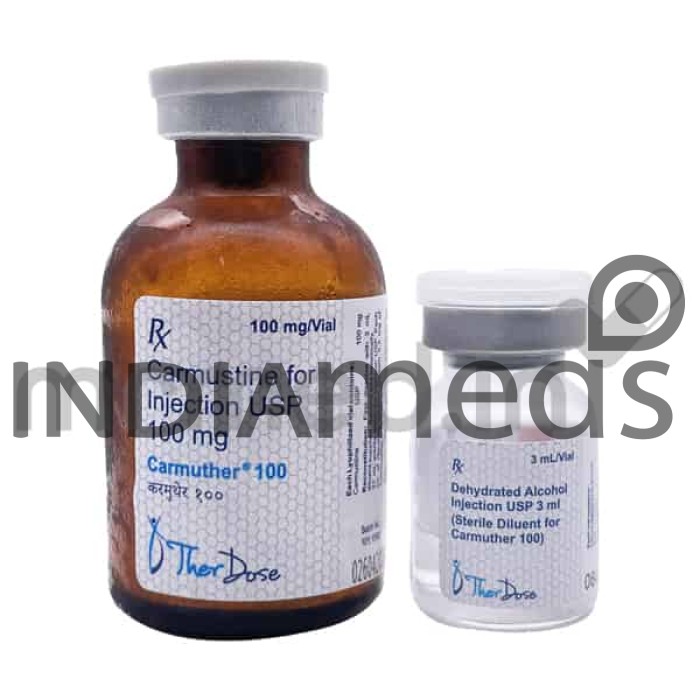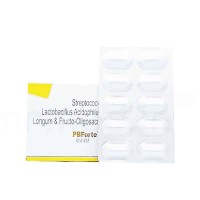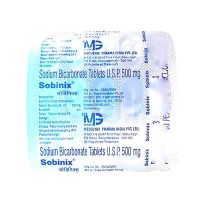Carmuther 100mg Injection belongs to the group of medications known as Antineoplastic. It contains active constituent carmustine. It is used as palliative therapy (preventing and relieving the suffering of patients) in certain types of cancers, like multiple myeloma, Hodgkin’s disease, non-Hodgkin’s lymphomas, and brain tumors (glioblastoma, medulloblastoma, astrocytoma, and metastatic brain tumors). Cancer is a disorder in which cells multiply in an uncontrolled and abnormal manner. This medicine is given alone or in combination with other medicines for cancer treatment.
Headache, dizziness, blurred vision, redness in the eye, nausea, vomiting, darkening of an area of nails or skin, fall in blood pressure, inflammation of veins, constipation, diarrhea, hair loss, anemia, flushing of the skin and lack of voluntary coordination of muscle movements are the common side effects of Carmuther 100mg Injection. Inform your doctor if these side effects disturb or persist in you.
Report to your doctor if you are allergic to Carmuther 100mg injection and its ingredients. It is contraindicated in patients with low blood platelets, white blood cells, red blood cells, and kidney dysfunction. Administration of this medicine can cause delayed bone marrow (a spongy substance inside the bone that produces blood cells) suppression and lung damage. Your physician will monitor your blood counts and liver and kidney function regularly. Tell your doctor if you have epilepsy, liver disorders, or alcohol addiction, as this medicine contains alcohol. Carmuther 100mg Injection should not be used during pregnancy and breastfeeding.
Therapeutic Effects of Carmuther 100mg Injection
Pregnancy
Carmuther 100mg Injection is unsafe to use during pregnancy as it may harm your unborn baby. Tell your doctor if you are pregnant or planning to get pregnant before taking Carmuther 100mg Injection. It will be given to you if clearly needed
Breast Feeding
You should not breastfeed while taking Carmuther 100mg Injection. Inform your doctor if you are breastfeeding before taking this medicine.
Lungs
Inform your doctor if you have any lung damage or condition before starting treatment with Carmuther 100mg Injection .
Liver
Carmuther 100mg Injection is probably unsafe to use if you have any liver disorders. Because it might cause reversible liver toxicity in high-dose therapy.
Alcohol
Avoid consuming alcohol with this medication as it may cause unpleasant side effects.
Driving
Carmuther 100mg Injection could affect your ability to drive, as it contains alcohol. Hence, avoid driving if you are unwell.
Serious:
- Severe allergic reactions (swelling of eyelids, face, lips, itching, rash, difficulty in breathing, feeling faint)
- Delayed myelosuppression (decrease in blood cells in bone marrow)
- Lung damage
Common:
- Headache, dizziness
- Blurred vision, redness in the eye
- Nausea, vomiting
- Darkening of an area of nails or skin
- Fall in blood pressure
- Inflammation of veins
- Constipation, diarrhea
- Hair loss
- Reactions at the injection site, flushing of the skin
- Anemia
- Lack of voluntary coordination of muscle movements
Yes, Carmuther 100mg Injection is a chemotherapy medication that is indicated to treat brain tumors, multiple myeloma, Hodgkins, and non-Hodgkin lymphoma.
No, It is unsafe to take Carmuther 100mg Injection during pregnancy as it may harm the baby. Consult your doctor before taking this medication.
No, Carmuther 100mg Injection should not be taken on its own. It is administered by your healthcare provider on your vein.
Carmuther 100mg Injection should not be used in patients with low blood count, kidney dysfunction, bone marrow suppression, and lung damage.
Carmuther 100mg Injection may cause side effects such as headache, dizziness, nausea, vomiting, fall in blood pressure, constipation, diarrhea, hair loss, and anemia. However, if these side effects worsen or persist, contact your physician immediately.
Carmuther 100mg Injection is not recommended for epilepsy, as this medicine contains alcohol. If you have any concerns regarding this, discuss them with your doctor.
Molecule name: Carmustine | Therapeutic class: Alkylating agents |
Pharmacological class: Antineoplastics | Indications: 1. Multiple myeloma (cancer of a kind of white blood cell called plasma cell) 2. Hodgkin’s disease (lymphoid tumor) 3. Non-Hodgkin’s lymphomas (lymphoid tumors) 4. Brain tumors (medulloblastoma, glioblastoma, astrocytoma, and metastatic brain tumors) |


